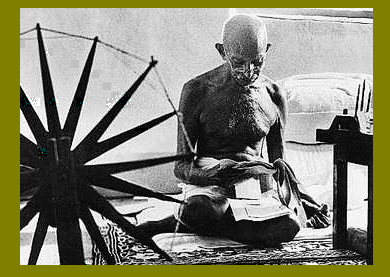Under Construction


In the summer of 1997, all of India and Pakistan celebrated the 50th anniversary of independence from Great Britain. You are 97 years old and none of your grandchildren and great-grandchildren know the story about how you, an ordinary Indian, helped win independence for your nation. You decide write the story of your participation for your family. This is the story of how one person fought for human rights and independence. Each part should include at least one page and a memento (please do not include a memento that will rot, leak, or spill) connected with the story. Here is the beginning of your story:
Introduction-1915: Introduce yourself and tell about first seeing Gandhi. In 1915, while visiting Bombay, you (at the age of 15) go to India Gate, the entrance to India at the docks where the steamships arrive. That day a man named Mohandas K. Gandhi returned to India after studying law in England and working in South Africa. Greeting him at the dock and at a reception that day are four very important men:
Vallabhbhari Patel (a leader in the Congress Party)
Mohammad Ali Jinnah (founder of the Muslim League)
Gopal Krishna Gokhale (one of the founders of the Congress Party)
Jawaharlal Nehru (a young leader in the Congress Party and much later the first Prime Minister of India
These five men will defy the mighty British Empire unarmed. They
will follow the methods of a small, quiet man dedicated to equality and
non-violence. In their quest for Hind Swaraj or Indian self-rule,
they will be beaten and imprisoned. Although you do not yet realize it,
you will share their fate.
After Amritsar, Gandhi tells the British: "You are master in someone
else’s home. You must humiliate us to control us." Explain why you thought
the British should now leave India.
The Mind of the Mahatma
http://www.ourindia.com/gandhi.htm
An Idealist
http://keirsey.com/gandhi.html
Mahatma Gandhi Album
http://www.kamat.com/mmgandhi/frtocmkg.htm
Chronology of Gandhi’s Life
http://www.askasia.org/frclasrm/lessplan/l000080.htm
India Info
http://www.indiainfo.com/
Jammu and Kashmir
http://www.jammu-kashmir.org/KIN/KoshSam/Complexities.html
Harappa
http://www.harappa.com/
Gandhi
http://www.engagedpage.com/gandhi.html
Gandhi, the Messiah of Peace
http://www.indiaspace.com/gandhiji.htm
The History of the Punjab
http://www.ualberta.ca/~mupal/punjab/history.html
The Salt March-A Force More Powerful
http://www.pbs.org/weta/forcemorepowerful/india/